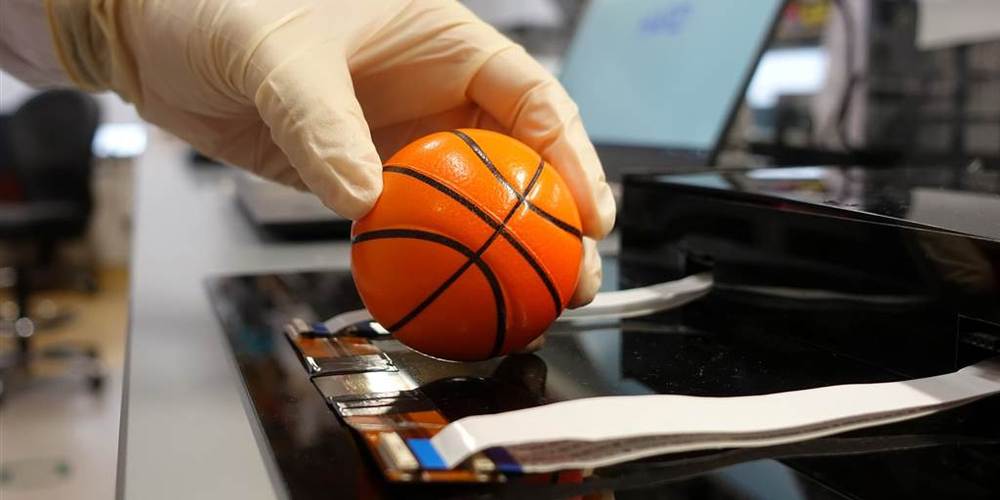Singapore researchers have developed “electronic skin” capable of recreating a sense of touch, an innovation they hope will allow people with prosthetic limbs to detect objects, as well as feel texture, or even temperature and pain.
The device, dubbed ACES, or Asynchronous Coded Electronic Skin, is made up of 100 small sensors and is about 1 square centimeter (0.16 square inch) in size.
The researchers at the National University of Singapore say it can process information faster than the human nervous system, is able to recognise 20 to 30 different textures and can read Braille letters with more than 90% accuracy.
